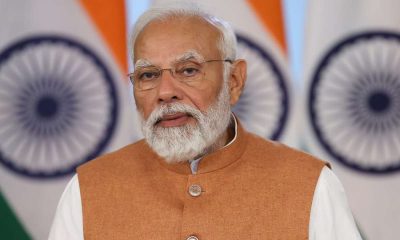Health
Finnish researchers develop new nasal spray that could protect against all Covid-19 variants for 8 hours
The researchers have developed a nasal spray that is effective against all kinds of Covid-19 variants. It is not a substitute for the vaccine but can protect against coronavirus infection for at least eight hours.
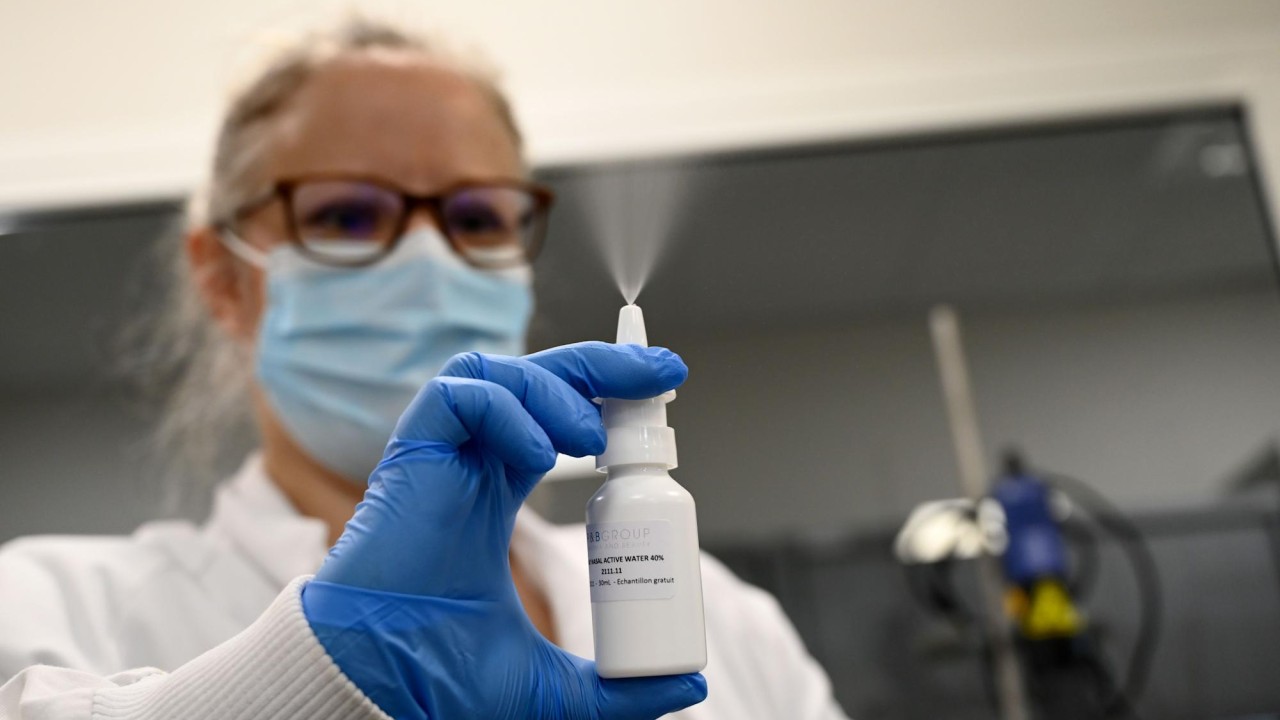
When the coronavirus situation tends to become normal, another Covid-19 variant emerges somewhere, wrapping the world under the virus. Ever since the pandemic occurred, researchers and scientists have been working day and night to develop a vaccine for the highly contagious virus.
After several attempts, Covid-19 vaccines were finally launched in 2021, giving relief to the people. With the surfacing of the new Covid-19 variant, Omicron, people thought vaccines could prevent them from catching the virus. Even though the variant has spread quickly but it is not severe as compared to the Delta variant.
Now, the Finnish researchers have come up with a new way to prevent oneself from catching the Covid-19. The researchers have developed a nasal spray that is effective against all kinds of variants. It is not a substitute for the vaccine but can protect against coronavirus infection for at least eight hours.
The researchers of the University of Helsinki, Finland have developed a nasal spray consisting of a molecule that can inactivate the coronavirus spike protein.
TriSb92, the novel molecule, has been confirmed to protect against coronavirus infection for at least eight hours in cell cultures and animal trials, even in circumstances of high exposure risk. TriSb92 has an instantaneous impact, unlike vaccination protection.
In animal models, nasally administered TriSb92 offered protection against infection in an exposure situation where all unprotected mice were infected, said Anna Makela, a postdoctoral researcher at the varsity. The findings have not been peer-reviewed yet.
Targeting this inhibitory effect of the TriSb92 molecule to a site of the coronavirus spike protein common to all variants of the virus makes it possible to effectively inhibit the ability of all known variants, Omicron included, to infect people, Makela said.
The TriSb92 molecule is based on a completely new technology technique for targeting biological drugs that was created in Finland. The solution was used in the research to stop the SARS-CoV-2 virus’s spike protein from circulating.
These types of molecules that prevent infections, or antiviral drugs for that matter, cannot substitute for vaccines in protecting the population against the coronavirus disease, said Professor Kalle Saksela from the varsity.
She further added that TriSb92 may be beneficial to patients whose vaccination protection is insufficient due to a variety of reasons. It may also helpfully vaccinate people when given before any event with a high chance of exposure, depending on the pandemic situation.
Health
India registers 313 new Covid cases, active cases reach 2,041, 3 deaths recorded in last 24 hours
The currently available data suggests that the JN.1 variant is neither leading to an exponential rise in the new cases nor a rise in the hospitalization and mortality.
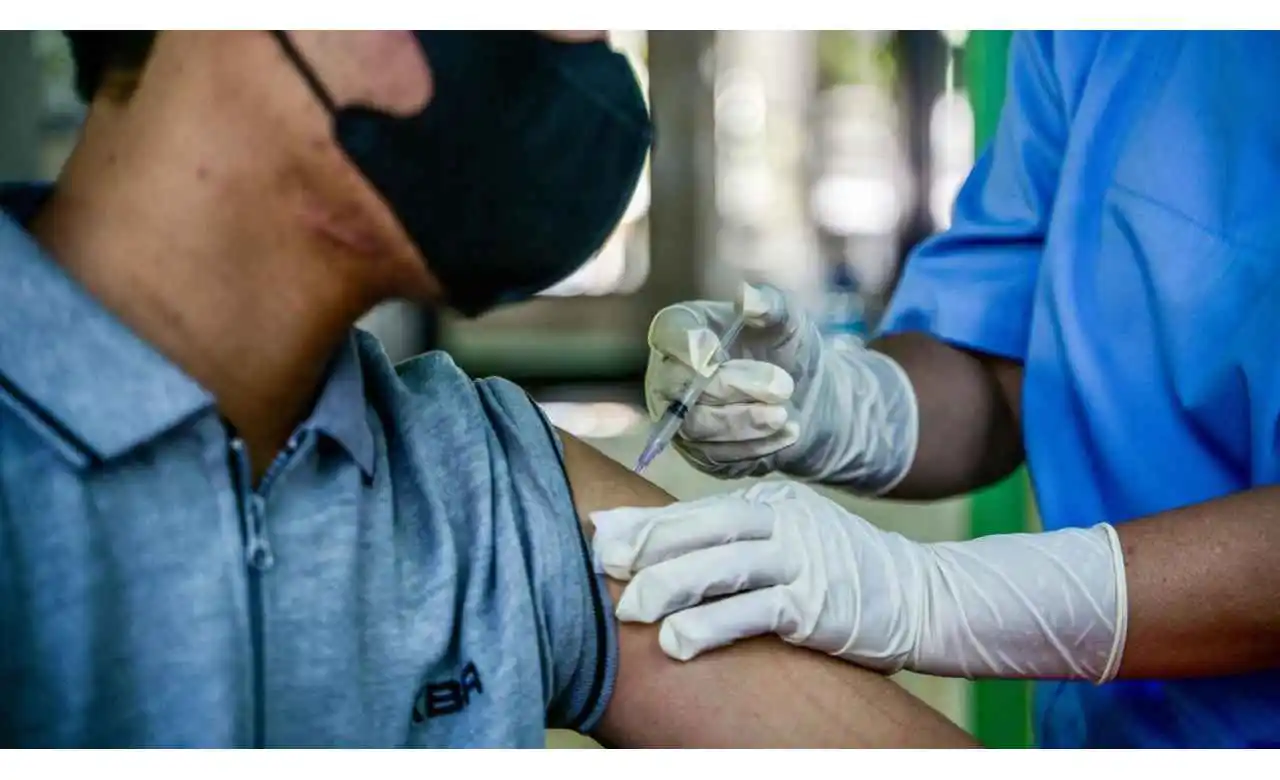
India saw a single-day rise of 313 new Covid cases, while the active caseload has declined to 2,041, the health ministry said on Saturday. Three deaths: two from Karnataka and one from Maharashtra were reported in the last 24 hours.
According to the ministry website, the number of active cases in the country stood at 2,331 on Friday. The number of cases of Covid had dropped to double digits till December 5, but it began to start increasing after the emergence of a new variant and cold weather conditions.
According to reports after December 5, the highest single day rise of 841new cases was reported on December 31, 2023, which is 0.2% of the peak cases reported in May 2021. Of the total active cases, a large majority of these (around 92%) are recovering under home isolation.
The currently available data suggests that the JN.1 variant is neither leading to an exponential rise in the new cases nor a rise in the hospitalization and mortality. India has witnessed three waves of Covid in the past with its peak incidence of daily new cases and deaths being reported during the delta wave in April June 2021.
At its peak, 414,188 new cases and 3915 deaths were reported on May 7, 2021. Since the pandemic started in early 2020, there have have been 4.5 crore people who have got infected and this has resulted in the death of 5.3 lakh persons in a total time span of four years.
According to the ministry data, the total number of persons who have recuperated from the disease are 4.4 crore with total recovery rate recorded is 98.81%. A total number of 220.67 crore doses of Covid vaccines have been administered in India so far.
Health
India registers 605 new COVID-19 cases and 4 deaths in last 24 hours
The number of people who have recovered from the disease has gone up to 4,44,81,341, an increase of 648 since Sunday morning. In Kerala a 70 year-old male with chronic obstructive pulmonary disease (COPD) and 81year-old male with T2DM and HTN, and in Karnataka, a 48 year old male with CA and TB died, while one person in Tripura succumbed to COVID.
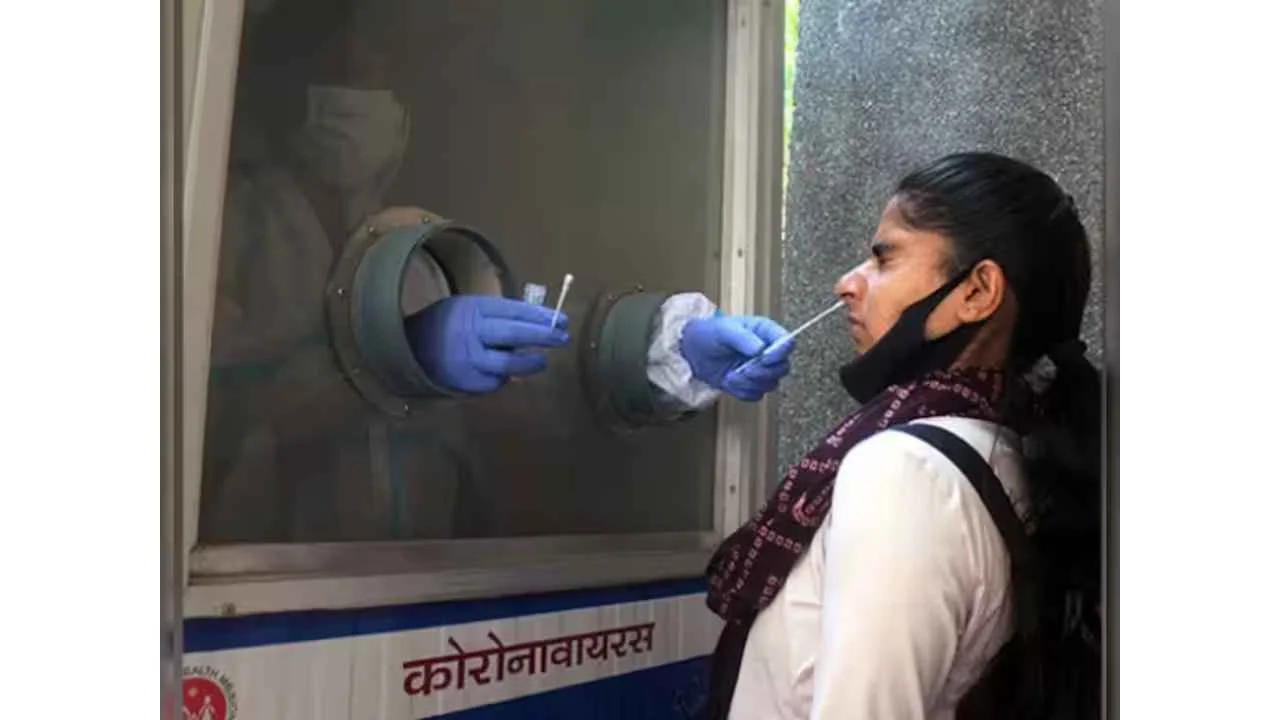
India recorded 605 fresh COVID-19 cases and four deaths in the last 24 hours. The active cases have increased to 4002, while India’s overall COVID case tally stands at over 4.5 crore (4,50,18,792). The death toll was recorded at 5,33,396 with four new deaths – two from Kerala and one each in Karnataka and Tripura – reported in the last 24 hours, the data updated at 8am stated.
The number of people who have recovered from the disease has gone up to 4,44,81,341, an increase of 648 since Sunday morning. In Kerala a 70 year-old male with chronic obstructive pulmonary disease (COPD) and 81year-old male with T2DM and HTN, and in Karnataka, a 48 year old male with CA and TB died, while one person in Tripura succumbed to COVID.
The Indian Council of Medical Research (ICMR) reported that 11,838 doses of the vaccine had been administered in the country till January 7. The data is a compilation of the Integrated Disease Surveillance Programme (National Centre for Disease Control), media bulletins and websites of various states at 8am on January 4.
As the winter season sets in, health experts are highlighting a sudden surge in viral infections, influenza, and COVID-19 cases. Dr Nikhil Modi, a senior pulmonologist at Indraprastha Apollo Hospital, pointed out that the decrease in temperature leads to increase in moisture in the air, low wind speed and also causes an increase in pollution levels. This contributes highly to various infections.
Due to the decrease in temperature the fog combines with the pollution in the air which further leads to the formation of smog. This condition of the atmosphere can cause different types of infections and difficulty in breathing. Both the state and the central government are keeping a close watch on the new Omicron Subvariant JN.1. J.N.1 is a Variant of Interest (VOI) which is under intense scientific scrutiny.
Health
India records 774 new Covid-19 cases, 2 deaths in 24 hours
The number of daily cases was in double digits till December 5 but it started to rise again amid cold weather conditions and after the emergence of new Covid-19 variant, JN.1.
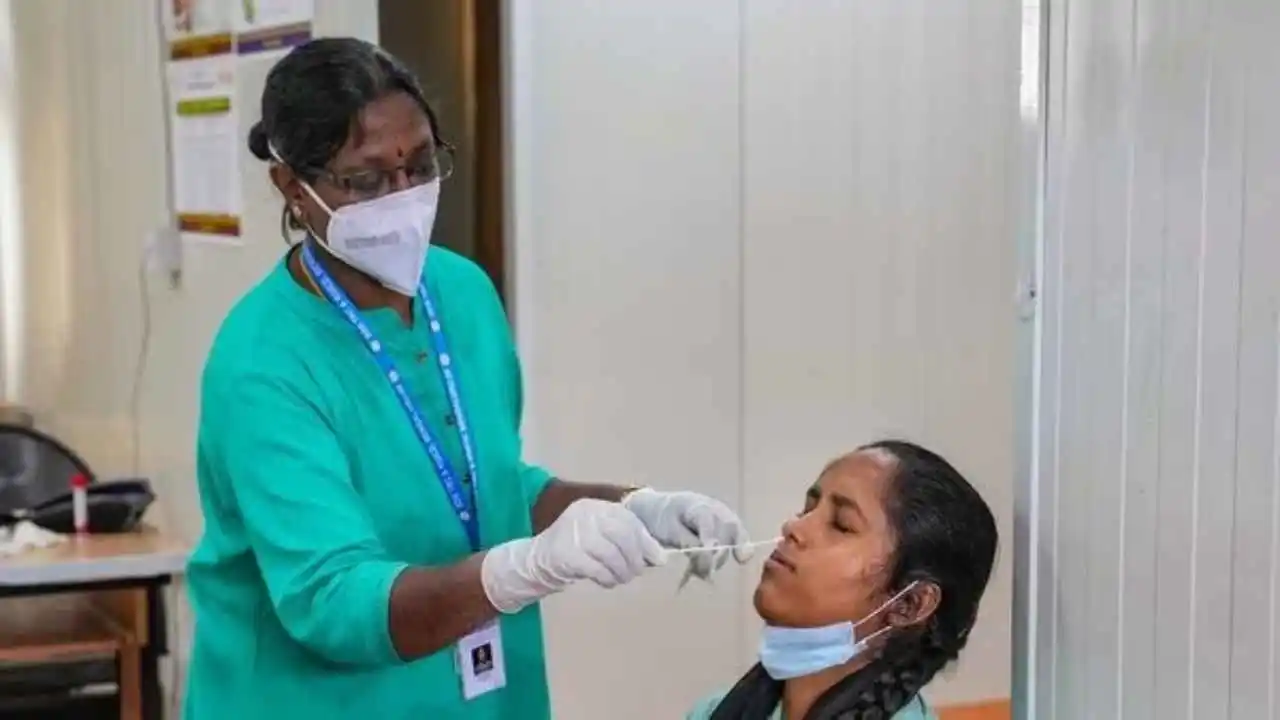
India on Saturday had a single-day rise of 774 Covid cases while the number of active cases stood at 4,187, the Union health ministry said. As many as two deaths – one each from Tamil Nadu and Gujarat were reported in a span of 24 hours. Of the 4,187 active cases, the majority (over 92%) are recovering under home isolation.
The number of daily cases was in double digits till December 5 but it started to rise again amid cold weather conditions and after the emergence of new Covid-19 variant, JN.1. The central government has asked the state government and union territories to maintain a constant vigil amid an upward trend in the number of Covid-cases and the detection of the JN.1 sub variant in the country.
According to reports after December 5, the highest single-day rise of 841 cases was reported on December 31, 2023, which was 0.2% of the peak cases reported in May 2021. A health official said that the JN.1 variant is neither leading to an exponential rise in new cases nor a surge in hospitalisation and mortality in the country.
The Karnataka government has made the Covid test mandatory for those with Influenza like illness (ILI) or Severe Acute Respiratory Illness (SARI). Karnataka Health Minister Dinesh Gundu Rao said more than 7000 tests are being done every day and the COVID positivity rate is 3.82%. The positivity rate in the state has not come down yet.
He said those with symptoms are being monitored and tested. Those who are in isolation at home have been told to take extra care. He added it is expected that the trend of decreasing Covid cases may start next week in Karnataka. India has witnessed three waves of Covid-19 in the past with the peak incidence of daily cases and deaths being reported during the Delta wave during April-June 2021. At its peak 4,14,188 cases and 3915 deaths were reported on May 7, 2021.
-

 Cricket news18 hours ago
Cricket news18 hours agoTelugu superstar Mahesh Babu meets SRH captain Pat Cummins, says it is an absolute honour
-

 Education23 hours ago
Education23 hours agoFarmer’s son Nilkrishna Gajare Nirmalkumar from Maharashtra scores 100 NTA score in IIT-JEE Mains 2024
-

 Entertainment21 hours ago
Entertainment21 hours agoAamir Khan to begin shooting in Delhi for Sitaare Zameen Par next month
-

 2024 Lok Sabha Elections21 hours ago
2024 Lok Sabha Elections21 hours agoBollywood actor Neha Sharma campaigns for her father Ajit Sharma in Bhagalpur, Bihar
-
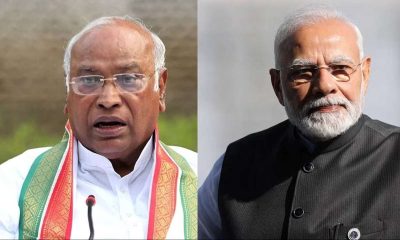
 2024 Lok Sabha Elections18 hours ago
2024 Lok Sabha Elections18 hours agoMallikarjun Kharge writes to PM Modi seeks time to explain Congress’s Nyay Patra
-

 Cricket news20 hours ago
Cricket news20 hours agoAB De Villiers criticizes RCB’s decision to let go Yuzvendra Chahal, says it was a hearbreaking moment
-

 2024 Lok Sabha Elections23 hours ago
2024 Lok Sabha Elections23 hours agoLok Sabha elections: Samajwadi Party chief Akhilesh Yadav files nomination from Kannauj
-

 Trending17 hours ago
Trending17 hours agoSocial media user shares video of Air India ground staff throwing expensive musical instruments, video goes viral





